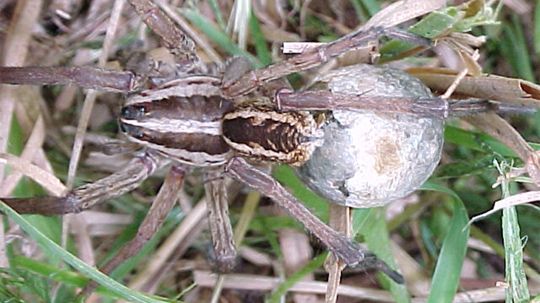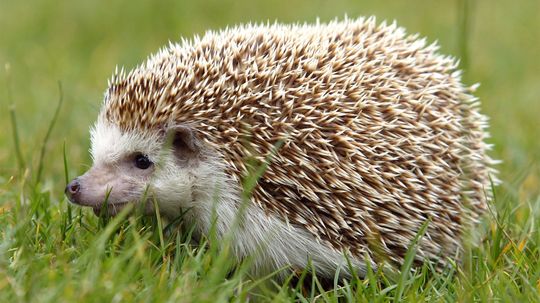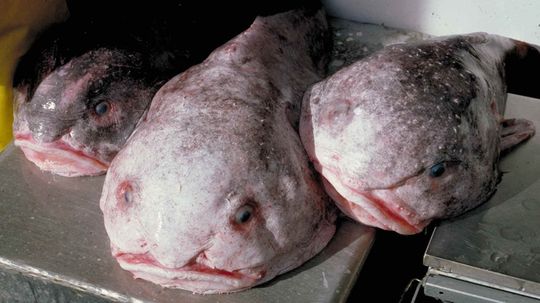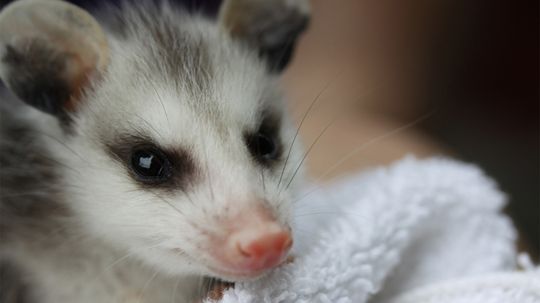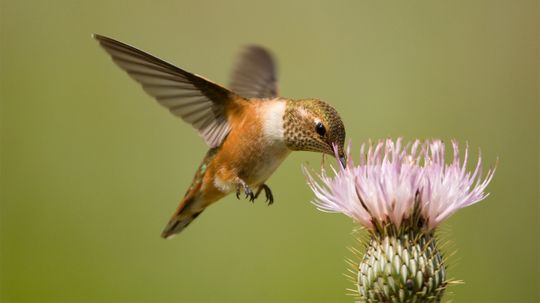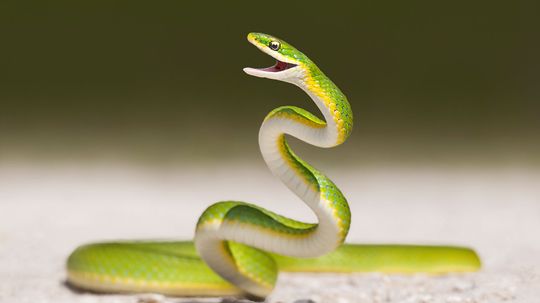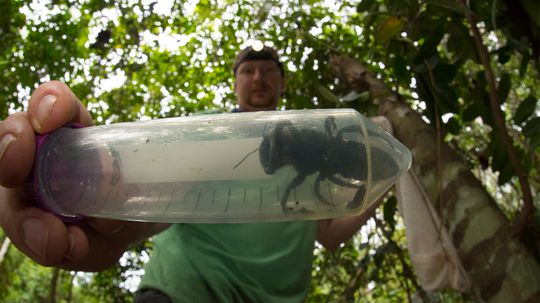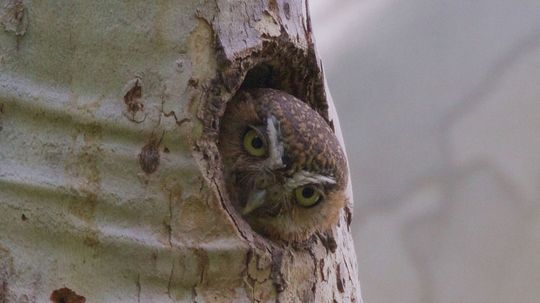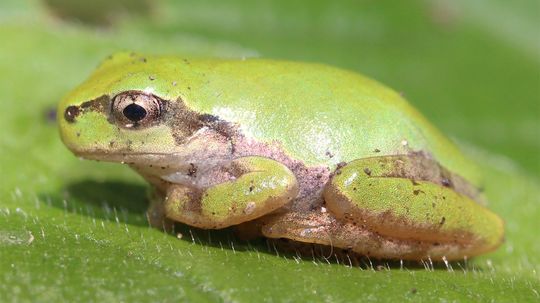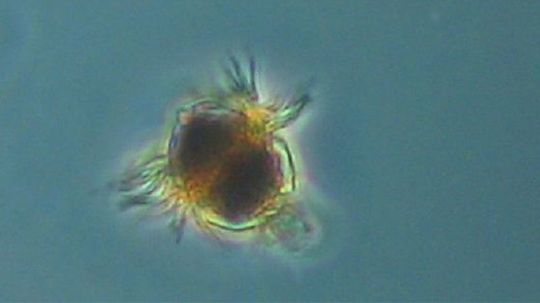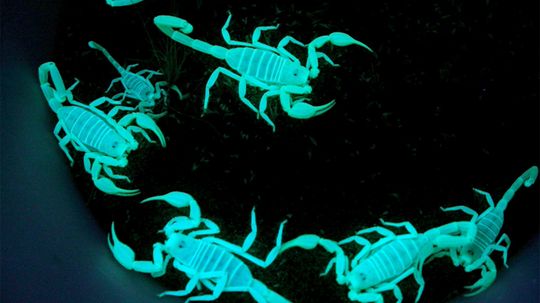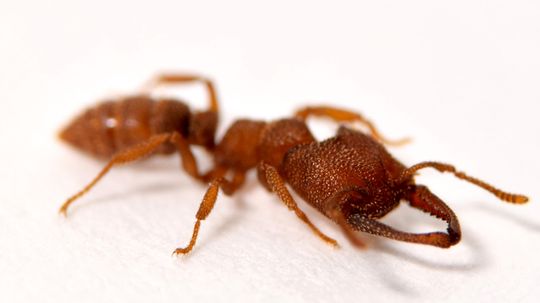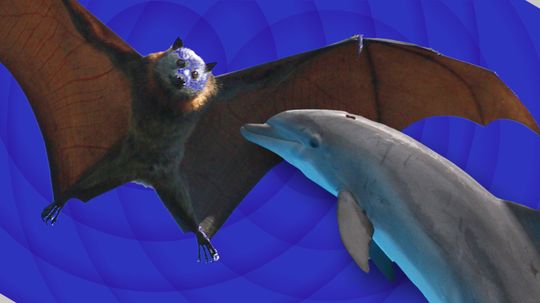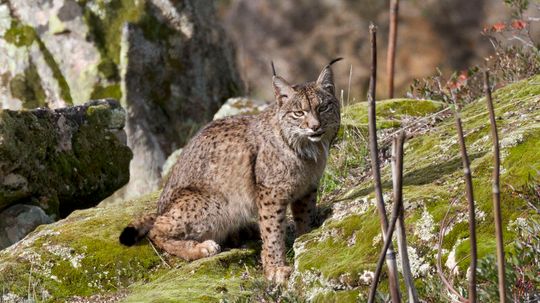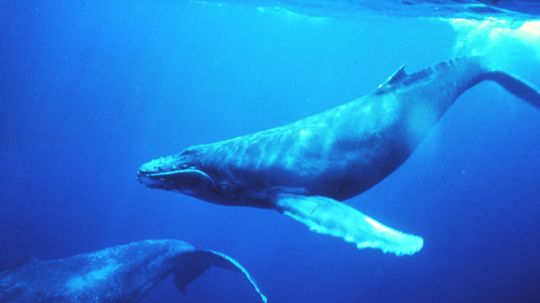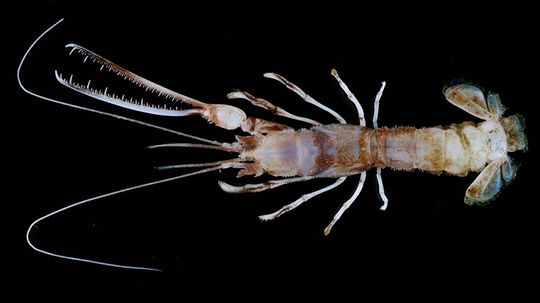Wild Animals
Whether they crawl, fly, swim, slither, walk, run or pounce, wild animals rely on their instincts. Read about all kinds of wild animals, mammals, birds, fish, insects, reptiles and amphibians.
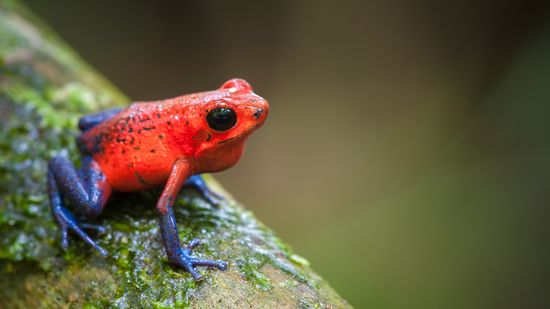
12 Colorful Frog Species: From Tie-dyed Designs to Rare Hues
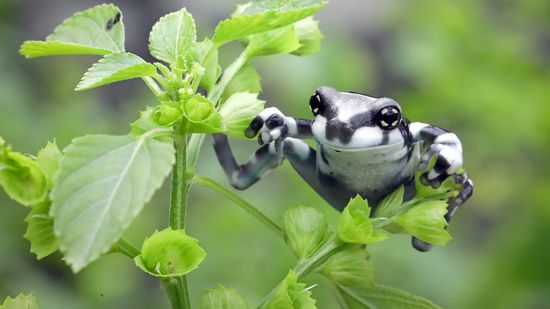
Amazon Milk Frog: Named for Its Defense, Not Its Color
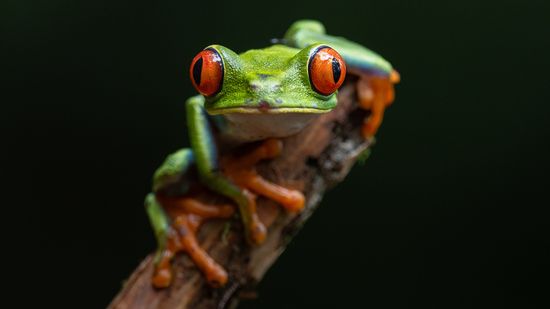
The Red-eyed Tree Frog Has Extremely Sensitive Skin
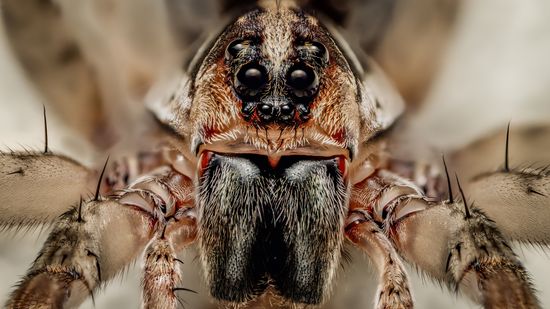
What Is a Group of Spiders Called? (Aside From Icky)
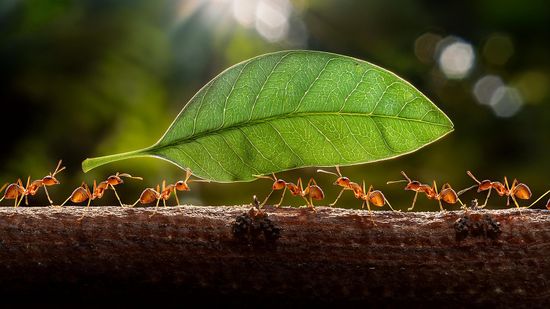
What Is a Group of Ants Called? Army vs. Colony vs. Swarm

10 Red Butterfly Species Found From India to Florida to Europe

What Is a Group of Swans Called? Not a Flock

What Is a Group of Ducklings Called? It's Surprisingly Moody
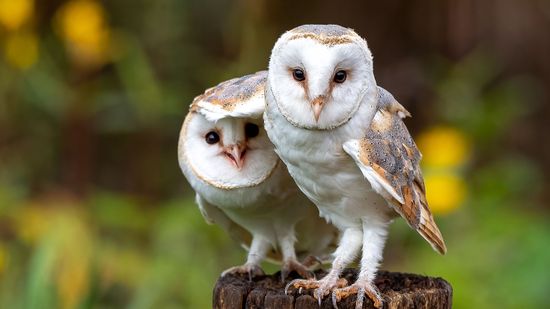
What Group of Birds Is Called a Parliament?

What Is a Group of Fish Called? Not Always a School
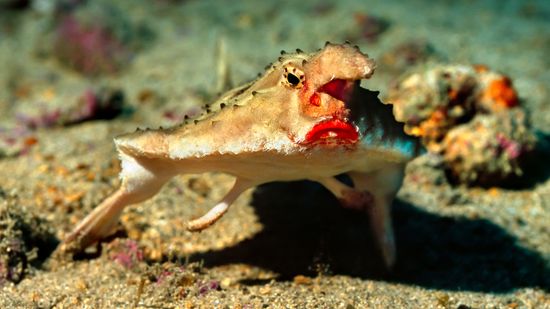
10 Weirdest Fish in the World: Batfish, Hairy Frogfish, and More
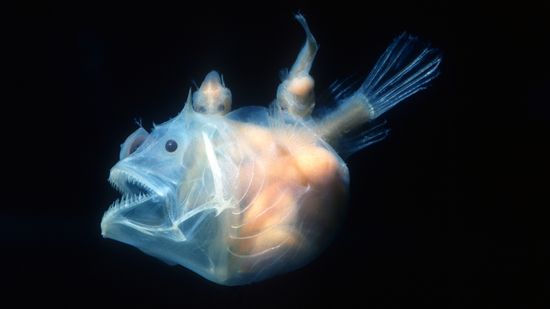
10 Scariest Fish Lurking in Rivers, Deep Ocean Waters, and Shells

What Is a Group of Hedgehogs Called? It's Adorably Appropriate

What Is a Group of Otters Called? The Official Terms Are Adorable

What Is a Group of Skunks Called? Here's Why You've Never Asked Before
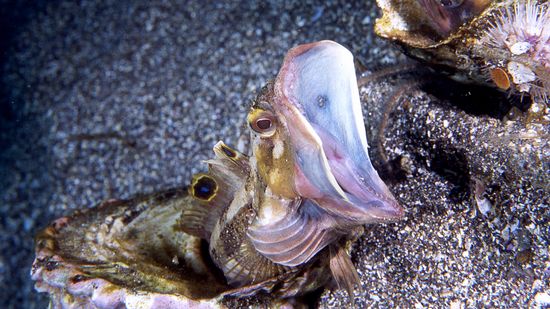
10 of the Scariest Sea Creatures Lurking in the Ocean's Depths

How Bioluminescent Jellyfish Get Their Signature Glow

White Spotted Jellyfish: Cute Until They Become Invasive
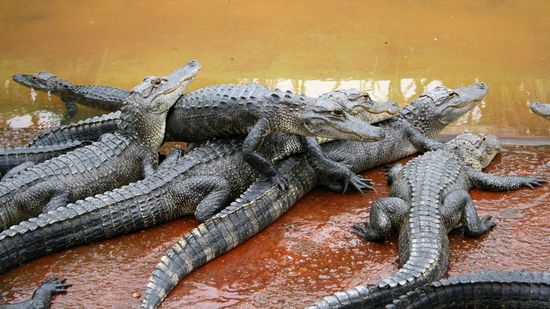
What Is a Group of Alligators Called? It Sounds Surprisingly Formal
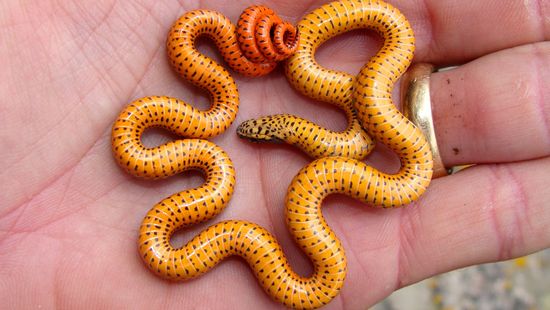
10 Cutest Snake Species That Have Us Squeeing
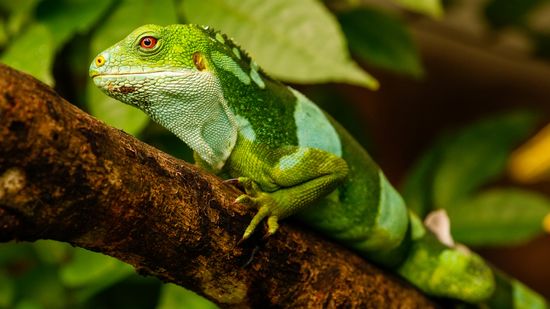
10 Colorful Lizards to Delight Reptile Lovers
Learn More / Page 28
Wolf spiders might find their way into your house and can look threatening, but they're really harmless.
Sure, hedgehogs are cute as heck, but do you think one really wants to live in your house?
The blobfish is actually pretty average looking in its normal habitat, but becomes a blob when it transitions from the pressure at depth to the water's surface.
Advertisement
There doesn't seem to be much of a gray area. Most people are a hard yes or yard no.
By Meg Sparwath
Sure, opossums eat out of your trashcan, but they're also strange little superheroes.
There's a lot of conversation around what we should be feeding our backyard hummingbird visitors, so we threw the question, along with others, to an expert.
By Jamie Allen
Snakes and lizards share a common ancestor, and snakes still have the genetic coding for legs and feet. So where did those appendages go?
Advertisement
Your favorite cashmere sweater is super-soft and luxurious. It probably cost you an arm and leg, too. Here's why.
By Jamie Allen
The world's largest bee, lost to science for 38 years, has been rediscovered on a remote island in Indonesia.
A group of researchers in Shennongjia National Nature Reserve discovered that these female monkeys are essentially happy to feed each other's offspring.
By Jamie Allen
Perhaps it's a mating signal. Or meant to confuse owls and other predators. Or maybe it's just for looks.
By Jamie Allen
Advertisement
There's an old saying that you catch more flies with honey than vinegar. Scientists have now found out why sour tastes are so repellent to flies.
By Alia Hoyt
The smallest owls in the world have mad survival skills, like killing poisonous scorpions and playing dead.
By Loraine Fick
Elephants make a specific sound to warn each other of nearby humans.
By Loraine Fick
Vomiting is nature's clearly preferred method for cleaning out the contents of the stomach. But not all animals can do it.
By Loraine Fick
Advertisement
A dolphin doesn't breathe automatically, so during sleep, one side of its brain stays awake to ensure the mammal rises to the surface and breathes.
By Loraine Fick
Penguins stand for months on the coldest ice in the world without their feet freezing, thanks to special blood circulation.
By Loraine Fick
The single-celled Mesodinium chamaeleon harnesses algae, which lives inside it, for energy.
By Loraine Fick
There are lots of theories. Maybe fluorescence helps them find each other in the dark?
Advertisement
It looks excruciating, and nobody knows exactly why it happens.
Think a teeny tiny ant can't pack a punch? Think again. The Dracula ant can subdue its prey so fast, they never know it's coming.
By John Donovan
Before you declare which team you're on, we've got the breakdown on this auditory battle royal.
By Mark Mancini
When we think of big cats in the wild, we most likely think of lions and tigers. But there are so many more amazing wild cats you've probably never even heard of. Here are five.
By Oisin Curran
Advertisement
Do humpback whales get tired of singing the same old song, or do they simply start over when it gets too complicated?
The first-ever deep-sea exploration of West Java seas netted more than 12,000 marine creatures, including some new species of crabs, prawns and lobsters.
By Oisin Curran
